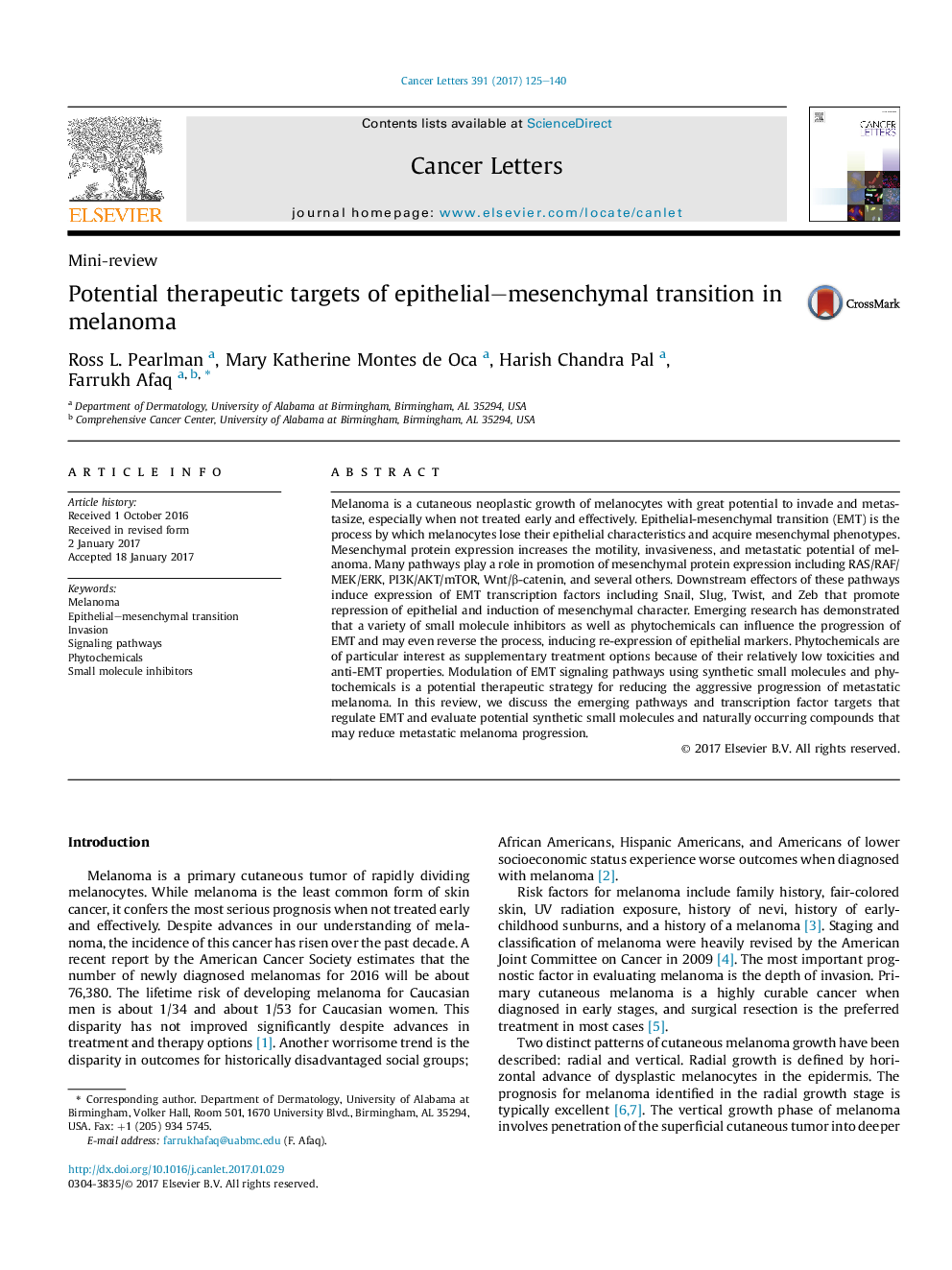| Article ID | Journal | Published Year | Pages | File Type |
|---|---|---|---|---|
| 5525379 | Cancer Letters | 2017 | 16 Pages |
â¢Signaling dysregulation induces expression of EMT-TFs in melanoma.â¢EMT-TFs favor loss of epithelial character and induction of invasive phenotypes.â¢Modulation of EMT signaling pathways is a potential therapeutic strategy for reducing invasion and metastasis of melanoma.â¢Various phytochemicals inhibit EMT, invasion and metastasis.â¢Small molecule inhibitors may offer specific approaches to regulating EMT.
Melanoma is a cutaneous neoplastic growth of melanocytes with great potential to invade and metastasize, especially when not treated early and effectively. Epithelial-mesenchymal transition (EMT) is the process by which melanocytes lose their epithelial characteristics and acquire mesenchymal phenotypes. Mesenchymal protein expression increases the motility, invasiveness, and metastatic potential of melanoma. Many pathways play a role in promotion of mesenchymal protein expression including RAS/RAF/MEK/ERK, PI3K/AKT/mTOR, Wnt/β-catenin, and several others. Downstream effectors of these pathways induce expression of EMT transcription factors including Snail, Slug, Twist, and Zeb that promote repression of epithelial and induction of mesenchymal character. Emerging research has demonstrated that a variety of small molecule inhibitors as well as phytochemicals can influence the progression of EMT and may even reverse the process, inducing re-expression of epithelial markers. Phytochemicals are of particular interest as supplementary treatment options because of their relatively low toxicities and anti-EMT properties. Modulation of EMT signaling pathways using synthetic small molecules and phytochemicals is a potential therapeutic strategy for reducing the aggressive progression of metastatic melanoma. In this review, we discuss the emerging pathways and transcription factor targets that regulate EMT and evaluate potential synthetic small molecules and naturally occurring compounds that may reduce metastatic melanoma progression.
